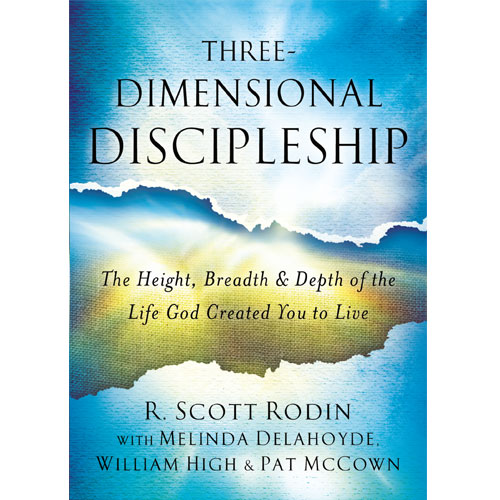Steward on the Mound
Part I of My Interview with World Series Pitcher Jeremy Affeldt

“Steward leaders refuse the temptation to tie their identity to their jobs.”
This is a line I use frequently in my teaching on the freedom and joy of the steward leader. It seems simple enough, but so many leaders have fallen prey to this temptation and lost their leadership and witness as a result.
So my ears perked up when I heard a friend commenting on his respect for how Jeremy Affeldt had been able to maintain his image as a child of God even amidst the most difficult of places to do so…the pitching mound in a World Series. Jeremy pitched for the San Francisco Giants for the last eight of his fourteen years in the major leagues. In that time, he played in 33 postseason games and posted a 0.86 postseason ERA, which is the third lowest in baseball history. His accomplishments include two sterling World Series’ in 2012 and 2014 where he threw 21 innings without giving up an earned run and recorded the win in game 7 of the 2014 Series over Kansas City.
Jeremy retired at the end of the 2015 season and lives in Spokane, Washington. I have known Jeremy through his ministry here in Spokane called Generation Alive. I worked with them on strategic planning and Linda and I have become financial supporters of their unique and important mission.
I asked Jeremy if he might share some insights with you, my blog readers, on the challenge of keeping your identity intact in the most ego-centric of professions. His comments were so fascinating that I have developed a two-part blog to share his thoughts with you. Here is the first part of our interview.
Scott: What was it like being a Christian and also a professional baseball player with all the glamour and the money and all the hype and the success? I mean you weren’t just a professional baseball player. You were absolutely at the top. How do you do that as a man of God and keep those things separate?
Jeremy: You know to be honest with you, while I learned to separate them, I lost my way a little bit too. When you work in an impact type business, whether you’re a CEO or investor, or an athlete or anybody that has any kind of leadership role, you tend to subconsciously rely on the praise of men, you really do.
And it doesn’t matter if you always say things like, “Well I love Jesus and I’m working for the audience of one.” You can say that all you want but the more you bank on the praise of men, you start to feed off it. I remember going through a real issue three years ago. It was right before the 2014 World Series. I remember having a hard time coming home and my wife not acting excited that I was home. Here I am in a job that puts me on the road two weeks a month, 24/7. And then when I’m at home, I’m at the field from 1pm to 11pm. So pretty much the majority of my days were spent in a ballpark where people would cheer for you.
Scott: That had to affect your self-image.
Jeremy: Yeah, absolutely. You have multimillion dollar minds in the front office asking opinions from you. You have an impact in a city that’s unbelievable. People refer to you as one of the ‘Core Four’. You’re one of the main guys everyone is counting on and then you’re a hero in the National League Championship Series. So when you get home and you don’t get that same reaction, there is an identity shock. And I think there’s a lot of leaders that don’t understand that, I didn’t.
Scott: So your self-image that was created at the ballpark conflicted with the image you carried at home as a husband and dad.
Jeremy: Yes, exactly. You know how many leaders, from athletes, to CEOs, to pastors, come home and their wife doesn’t look at them in awe like everybody else does. You are just Jeremy or Joe. You’re a dad and you’re a husband. Hey, you got lawns to cut, trash to take out. And that adjustment will bother guys.
Scott: How did you learn to handle it?
Jeremy: I had to actually take a step back. I met with some guys that have really helped me out in my marriage. The question that was posed to me was, “Who does God say you are?” And I mean you want to try to rattle off all these religious answers like, “well I am a child of God, I am the apple of his eye, I’m all these things”. But you don’t believe any of that. Most of us don’t live under that identity right?
Scott: I’d have to agree. Most all leaders I’ve met and worked with admitted to some level of struggle with their identity. So how did you find the answer to that question?
Jeremy: It was tough. Other ball players would say, “you’re a Christian you can’t do that, you can’t do this you have to do this.” You start to live by a ‘dos and don’ts’ mentality. That’s not what my faith said and I didn’t want to believe that, I don’t believe it, but I think I fell into it and suddenly I don’t know who I am. But then I figured out who God said I was, and the answer to that for me was, “You are holy and righteous. That’s your identity.
Scott: And that was your answer.
Jeremy: Yes, and still is. My identity is I am holy and righteous. I may move out in my own flesh from time to time, I understand that, but I am always holy and righteous in God’s eyes.
Scott: How did that change your life on and off the field?
Jeremy: I was living that mostly in my baseball career. I am not going to say I lived it in my marriage as quickly. I lived it in baseball. And I think it helped keep me even more grounded in the last few years when we won the World Series in 2014. I became a record setting left handed reliever in all of baseball history so there were all the accolades, but that’s not who I am. And I tell people that all the time.
Scott: Has that helped you in the process of retiring from baseball?
Jeremy: When you can come to the understanding in your identity that you are holy and righteous you live out of that. So now if I have success as a pitcher or retire from baseball, I feel like I have the ability to still walk as a holy and righteous person because that is my identity. No matter what I do that never changes. No matter how much success I have, or say I mess it up and I fail, or I do something in my marriage that isn’t okay, or I don’t parent right or I don’t make a good decision at my work…that doesn’t mean I am not holy and righteous. I might have acted out of flesh – I am always going to act out of that from time to time – but that’s not who I am, and I tell people all the time that identity is big.
Scott: How has that impacted your role as a father?
Jeremy: My three sons are part of the Affeldt family. I tell them you can mess up, you can lie, you can not love their neighbor as yourself, but you are my son, that’s who you are. You might mess things up, but that never changes your identity and who you are as a member of my family. That’s how I look at the kingdom of God. I’ve been adopted into the kingdom of God, and God’s never going to change. He is never going to deny me. I might not always act how he wants me to act or say what he wants me to say, but I am still holy and righteous. And holy and righteous people have a kingdom mentality. That kingdom mentality is loving your neighbor as yourself.
Scott: That’s real security, isn’t it?
Jeremy: Absolutely. When you can live and move and have your being in that area you become living grace. You understand there’s mercy and forgiveness given to us and therefore we give it to other people. It doesn’t matter what you do, how good you are, it doesn’t matter if you are the king of an industry or a pitching star. That’s not your identity, its just your talent, your gift that makes you successful. That’s not who you are, and I think for me that identity of holy and righteous keeps me grounded, because a holy and righteous person does not look at his wife and say mean things to her heart. Have I done that? Yes! That’s not who I am and that’s not what I want to do.
Scott: And that has helped you in your marriage as well?
Jeremy: Yes. My holy and righteous mentality says I serve my family I don’t expect to be served because that’s what husbands are called to do, to love their wives and serve them and serve your children. And so when I come home, I don’t need that, “Oh, Jeremy thank God your home.” You know, the whole ‘Leave it to Beaver’ mentality where she comes and kisses your cheeks and feeds you. That’s a false sense of reality that men think they want. But for me as a man I had to understand who am I. I am a holy and righteous person who serves his family and serves his wife and serves the people at work. Even if I am the CEO I still serve the people that work for me, that’s who I am.
Scott: Now that you’re retired from all that praise and glamour, that identity has proven to be all you need?
Jeremy: Yes, now no matter where I go or whatever I do, no matter what praise or cheers I am given, I don’t see myself as that person. I see myself for who I am in Christ. And that grounds me.
Join us next week for part 2 of my interview with Jeremy Affeldt.





